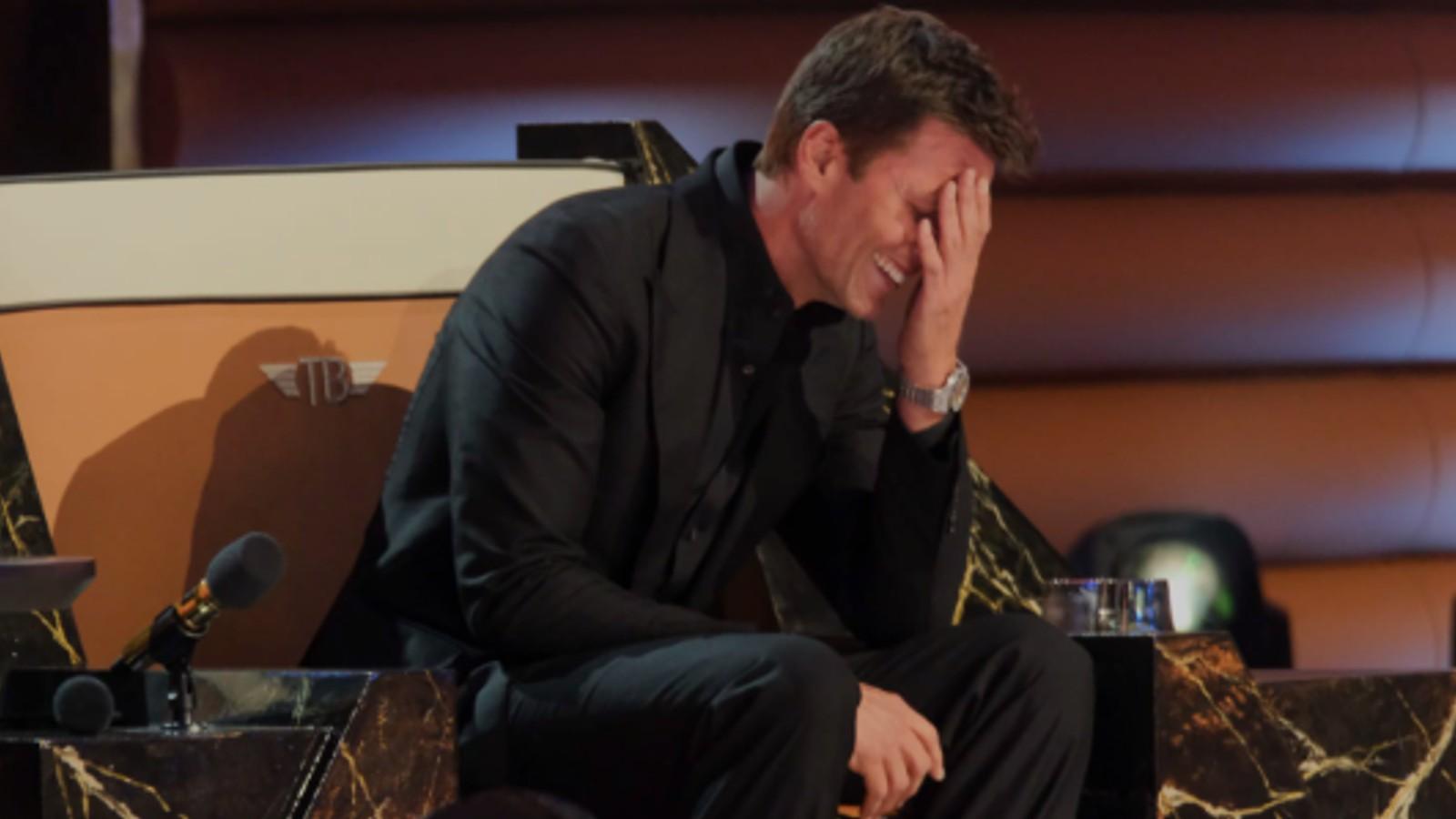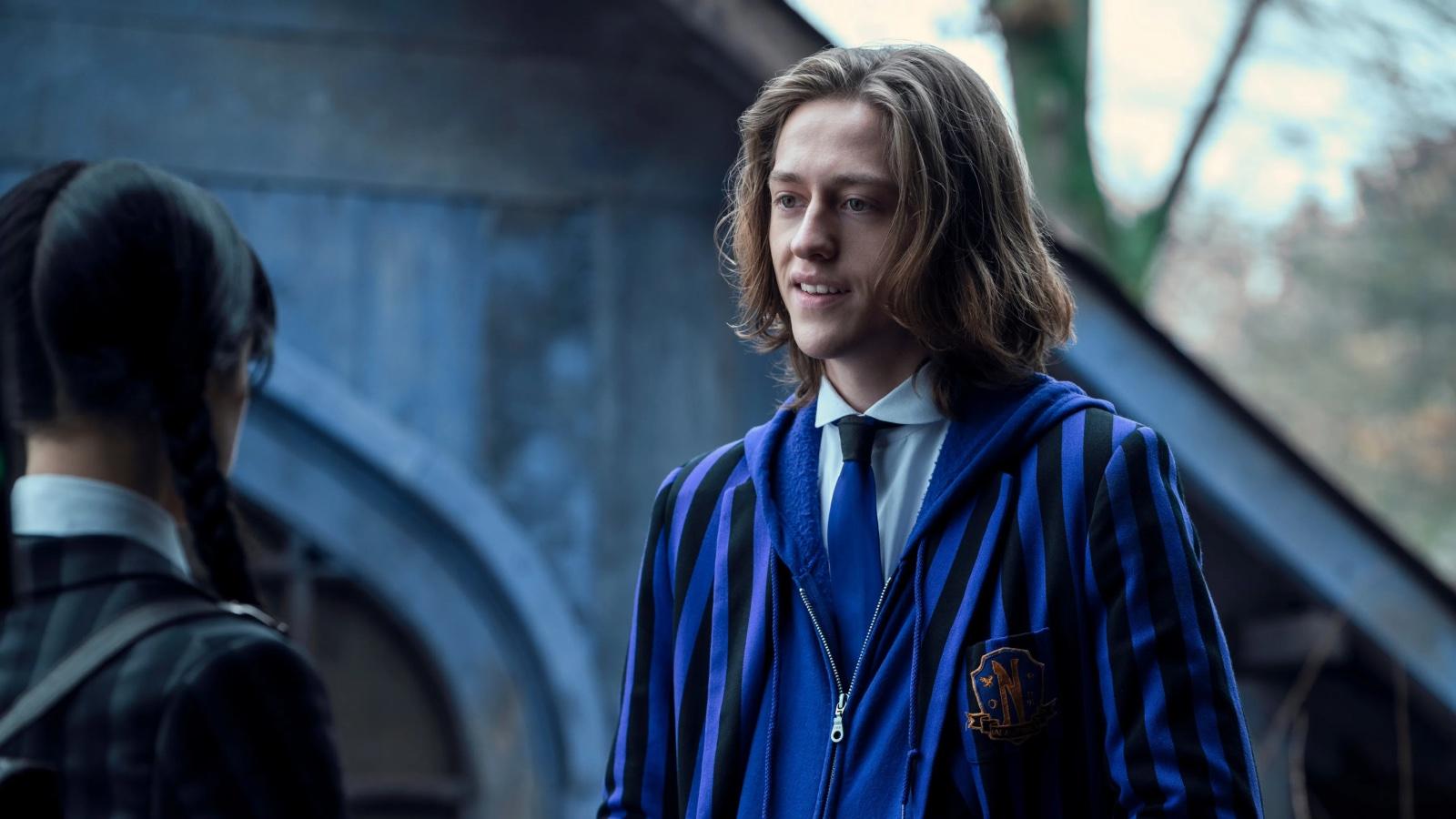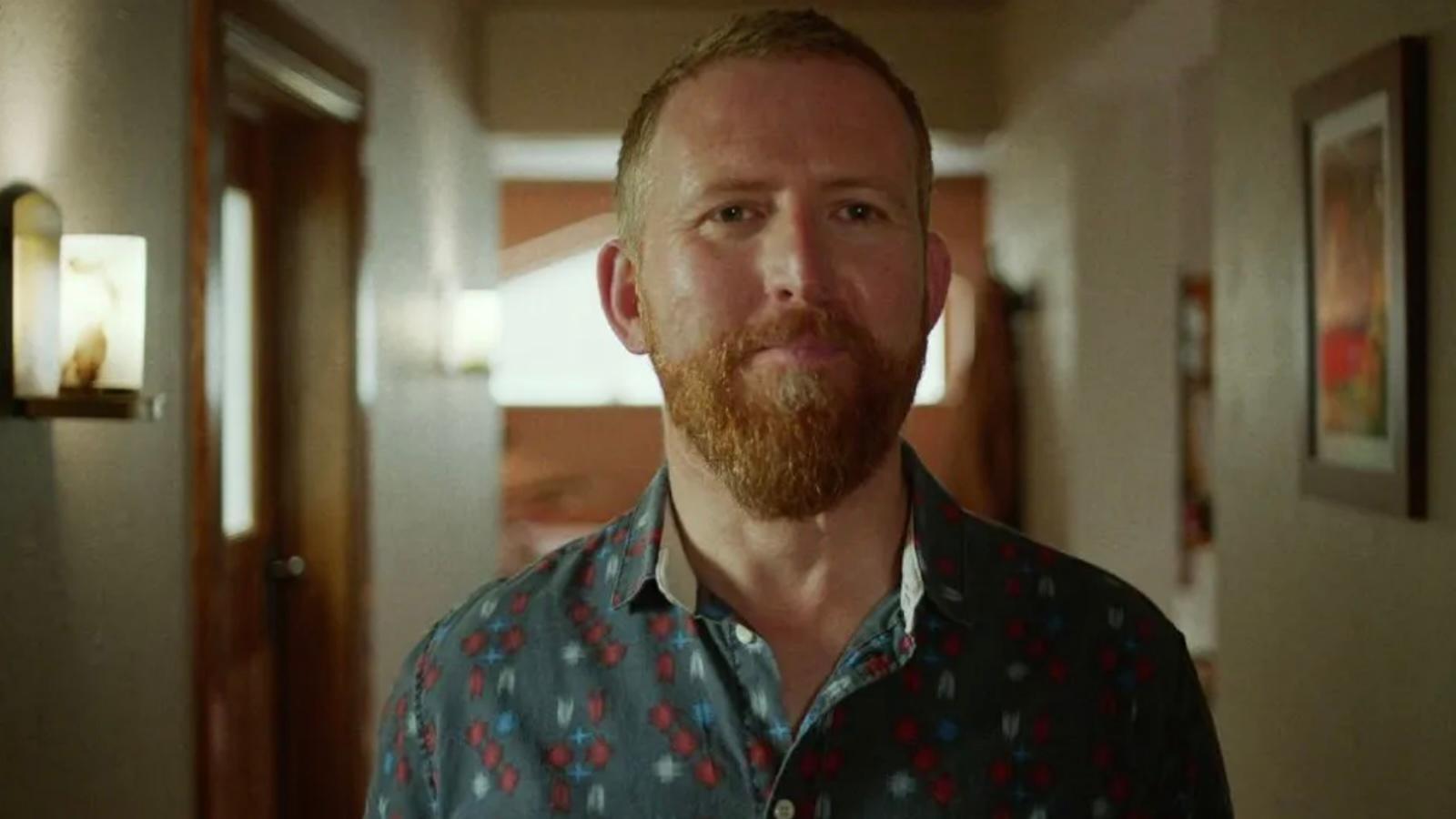Who Killed Jill Dando? Shocking true story behind Netflix documentary
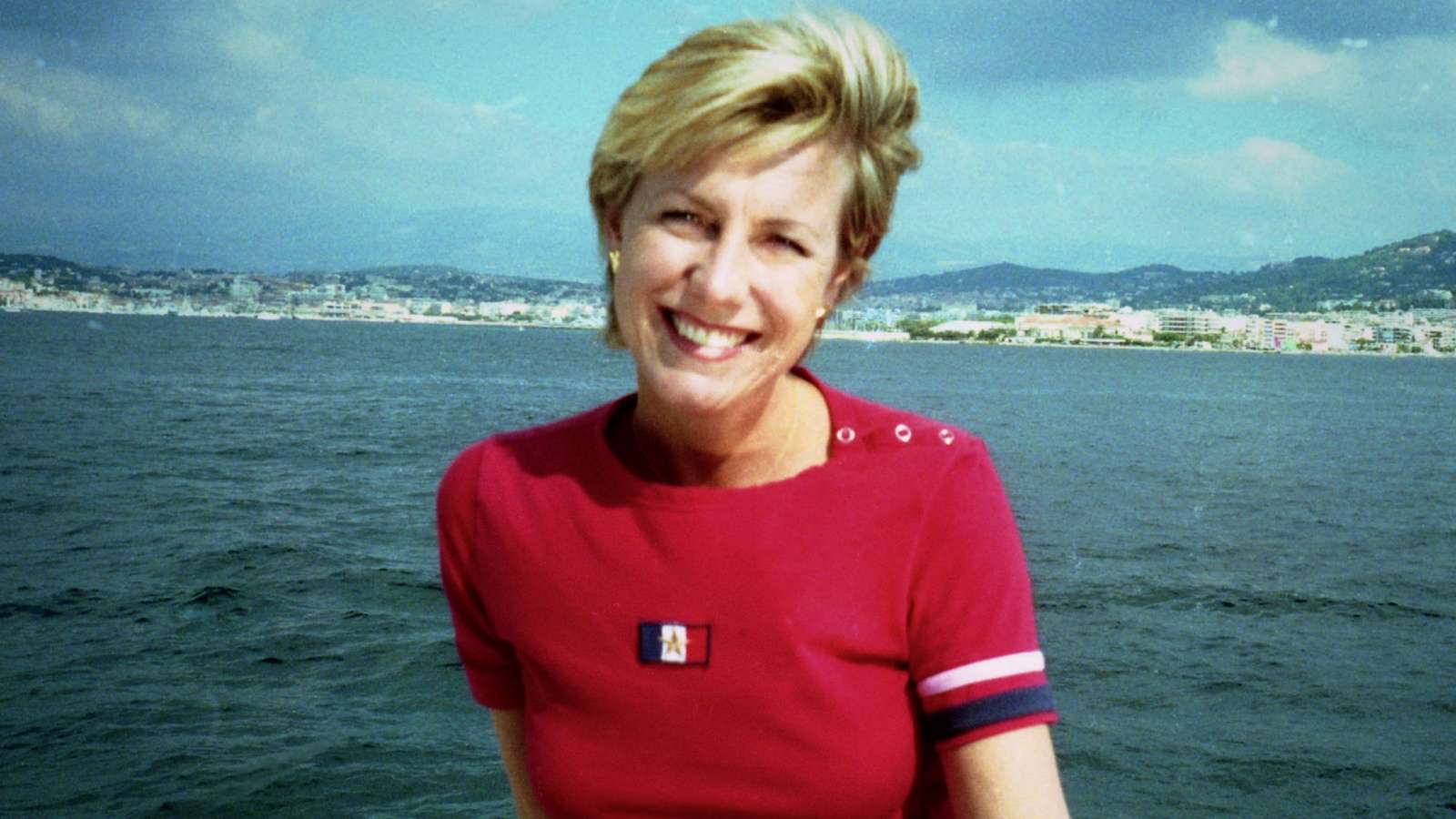 Netflix
Netflix Netflix’s new documentary explores Britain’s famous unsolved murder of Jill Dando, raising the question: “Who Killed Jill Dando?” The series delves into the cause of death, Barry George’s involvement, and various theories surrounding the case.
At numerous moments throughout Who Killed Jill Dando, various figures from Dando’s life compare her to Princess Diana. They were both beloved by the British public, they were both highly respected in the media, and they both died in mysterious circumstances.
Like the Princess of Wales, Dando’s life was cut short in an incident that continues to mystify the public, with theories about what really occurred still being put forward to this day. As said by Netflix: “Despite one of the biggest homicide investigations in British history, the murder remains unsolved.”
Who Killed Jill Dando? is a three-part series that takes viewers through the twists and turns of the case, as family, friends, journalists, investigators, and lawyers grapple with the titular question. We’ve broken down the true story as detailed in the documentary, including what happened to Dando, who Barry George is, and the various theories put forward over the years. Warning: Some may find this content distressing.
Who was Jill Dando and what happened to her?
Jill Dando was a beloved and prominent British TV presenter and journalist, best known for her work on the BBC, where she hosted several programs including the flagship show Crimewatch. On April 26, 1999, she was shot outside her home in Fulham, London, in broad daylight, with the cause of death being ruled as brain injury sustained from a single bullet to the head.
Throughout her career, Dando’s engaging presence and professional demeanor made her one of the UK’s most recognized and respected broadcasters. She began her professional life in print journalism before becoming a newsreader for BBC Radio Devon in 1985.
Dando quickly established herself as a talented and versatile presenter. Throughout the 80s and 90s, she became a familiar face on British television, fronting a diverse range of programs. She co-presented the BBC’s Breakfast Time, anchored the regional news program South West, and later gained nationwide recognition as the face of the popular BBC series Crimewatch, which appealed to the public for help in cracking unsolved crimes.
Additionally, her work on the travel show Holiday showcased her ability to connect with viewers on a variety of topics. Dando’s warm, personable style, combined with her professionalism, made her one of the BBC’s most beloved and sought-after broadcasters.
 Netflix
NetflixIn her personal life, following a relationship with BBC executive Bob Wheaton, who appears in the Netflix documentary series, Dando started dating royal physician Alan Farthing. The pair announced their engagement in January 1999, with plans to marry in September of that year.
Just a few months later, Dando was killed outside of her home at the age of 37. The sudden and brutal nature of her death shocked the nation, leading to one of the most high-profile police investigations in UK history.
There was so much blood at the scene of the crime that her death was initially mispronounced, with Dando’s BBC colleagues announcing the news that she was stabbed to death, before police shared that she had actually been killed by gunshot. Despite several leads and an initial conviction that was later overturned, her murder remains unsolved, leaving the exact circumstances and motive behind her assassination a mystery.
The reverberations of her death are still felt today, with family, friends, and colleagues expressing their grief over the loss. In the aftermath of her death, Farthing said in an interview: “I cannot understand why they would want to kill somebody as gentle, kind, well-meaning, and as perfect a person as Jill.”
Who is Barry George and where is he now?
Barry George is a British man who was convicted for the murder of Jill Dando in 2001, only for the conviction to be overturned after he’d spent eight years in prison. George had a history of crime, having been previously arrested on sex offense charges. However, much of the evidence linking him to the murder of Dando was circumstantial. Since being cleared and released from prison, George now lives in Ireland near his sister.
After looking at those closest to Dando and the idea that the killer could have been a hitman, the police strongly believed the perpetrator was a loner. “We knew from the first day from the nature of the injury to her head and the muzzle mark of the gun had impacted and imprinted itself on the head… that didn’t strike me as a quick assassination,” says Hamish Campbell, Senior Investigating Officer on the case.
During the public call for information, several messages came through relating to the same person: Barry Bulsara. According to the people who called in, Bulsara had been requesting information on what he’d been wearing and his whereabouts on the day of Dando’s murder. Campbell suggested that he “wanted to know his alibi.”
Officers started looking into him and realized he had previous convictions, including attempted rape, and they also discovered that Barry Bulsara was actually named Barry George. After tracking him down, police obtained a warrant to search his house, where they discovered thousands of undeveloped photos of seemingly unaware women on the streets, as well as one of him wearing a gas mask and holding a gun. They also found magazines relating to firearms, martial arts, and news media coverage of Dando.
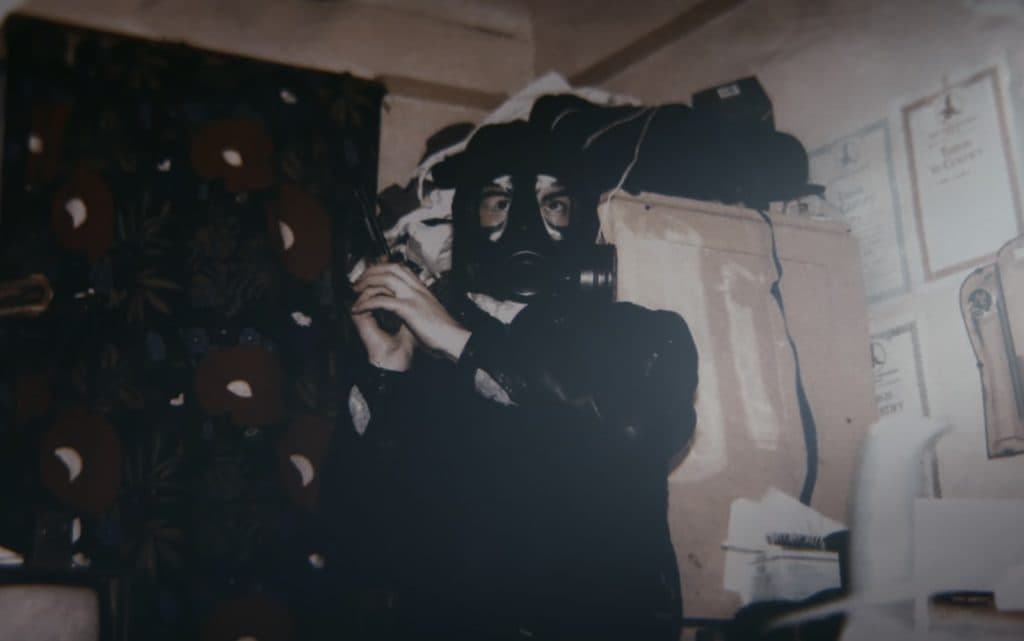 Netflix
NetflixAlthough George continued to deny any involvement in the murder, investigators uncovered a coat at his home which, when sent for forensic analysis, was found to contain a single particle of gunshot residue. This was, as they say, the smoking gun for the detective team, and George was arrested and put on trial for Dando’s murder. Ultimately, much of the evidence was circumstantial, other than the one residue particle. However, a jury found him guilty and he was sentenced to life imprisonment in July 2001.
Who Killed Jill Dando? also explores the other side of the case, resulting in an interview with Noel “Razor” Smith – a former criminal and reporter for the Inside Times. He explains that while in Belmarsh prison, he was able to speak with George, who denied any involvement in the murder. When asked if he liked guns, George is said to have replied: “I like Guns and Roses.”
George’s sister, Michelle Diskin-Bates, also believed her brother after meeting with him in prison. “We needed to get the best legal representation we could,” she explains, which led them to Michael Mansfield KC, a barrister with an extensive background in high-profile cases.
When he got to work on George’s case, he started looking back through the investigation with a fine tooth comb. Mansfield also had George assessed by a psychologist, who discovered that his IQ was in the lowest 1% of the population. It was suggested that George would not have been capable of committing and covering up a crime of this scale.
At the same time, the newspapers were involved in reporting about George’s background, and they found that he had built up what is described in the documentary as a “fantasy life” for himself. In the 80s, he had been fined for impersonating a police officer; he had lied to women by telling them he was in the SAS; and he claimed to be the cousin of Freddy Mercury, which isn’t true.
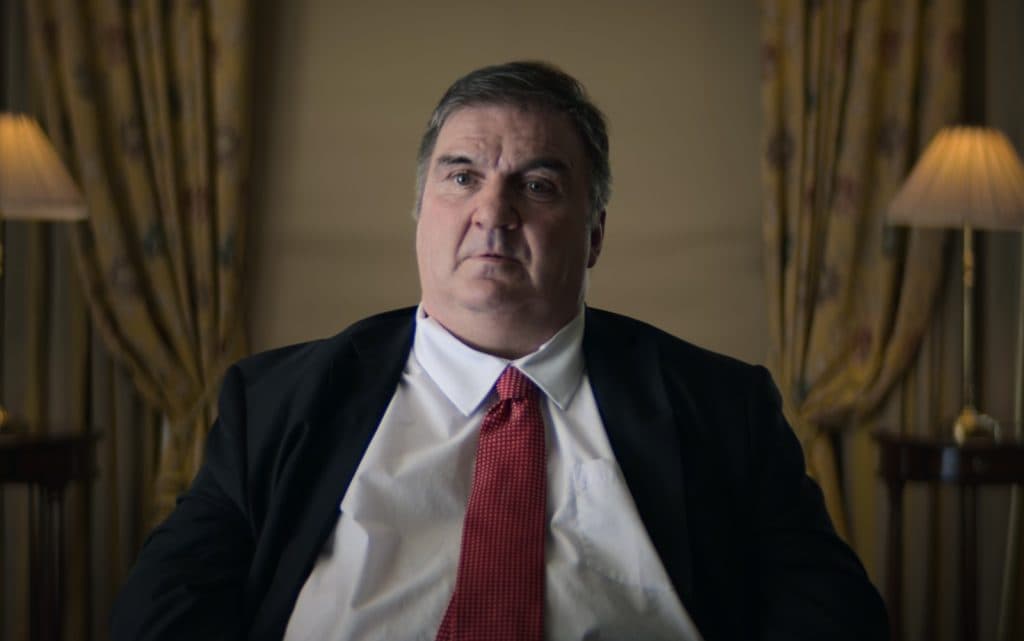 Netflix
NetflixA few years after George was convicted, his sister reached out to journalist and presenter Raphael Rowe, who was wrongly convicted and spent 12 years in prison for a crime he didn’t commit. Rowe ended up speaking to the FBI, where he was informed that the US had started to question the reliability of gunshot particles and that it was no longer being used as evidence due to contamination concerns.
This information led to a retrial, and this time George was found not guilty. A number of those close to the case believe the police were under such great pressure to solve the crime, they mistakenly followed the lone wolf theory. To this day, the murder of Dando remains unsolved, with Mansfield saying: “The file should still be open on this case.” However, some detectives believe they already solved it. When asked if he believes George killed Dando, Campbell says, “I did,” adding: “I don’t think I’ve changed my mind.”
George himself appears in Netflix’s true crime series, where he describes his experience of being wrongfully convicted of the crime and denies any involvement. As for his life today, he says: “I live in Ireland now. It’s quiet here. You’re treated like a scab in London, but you’re not here.”
Why was Jill Dando killed? The theories about the murderer
Although we still don’t know why Jill Dando was killed, dozens of theories have emerged over the years about who committed the murder, ranging from a Serbian hitman taking vengeance to an “establishment cover-up” involving the IRA.
Theories have been posed by the media, by experts, and by the general public, all of which aim to solve the ongoing mystery. “The public knows where there hasn’t been any resolution,” says Mansfield. “So, it makes sense they want to examine it themselves.” Below you can find the main theories about the crime:
- Random act: Some suggested that Dando’s killing was a random act of violence, although this theory seemed less likely given the calculated nature of the attack
- Stalker or obsessed fan: Given Dando’s popularity and visibility on television, some speculated that she might have been killed by an obsessed fan or a stalker
- Professional hit: Due to the methodical nature of her murder, there was speculation that it was a professional hit, although the motive remained unclear. Mansfield previously told the court that the murder had the “hallmark features” of a contract killing
- Serbian hitman: This theory suggests that Dando was murdered by a Serbian hitman as a retaliation for the NATO-led bombing of a TV station in Belgrade just three days prior to her death. Dando had also presented a BBC appeal for Kosovo-Albanian refugees during the Kosovo War a few weeks before the murder. The implication is that her involvement in the coverage of the conflict and her appeal on behalf of the refugees might have made her a target in the eyes of certain Serbian nationalists
- Criminal revenge theory: Some speculated that Dando might have been targeted because of her involvement in the BBC program Crimewatch, which sought the public’s assistance in solving crimes. This theory proposes that someone who was exposed or felt threatened by the series might have wanted revenge
- Establishment cover-up: In George’s second trial, a letter from IRA member and convicted killer Wayne Aird was uncovered. Aird claimed he was “part of a four-man IRA hit squad” who targeted Dando due to her work on Crimewatch and subsequent connection to the British police, and that he was coming forward as he didn’t want George to be part of an “establishment cover-up” to avoid disrupting the peace process with Northern Ireland
- Pedophile ring: An anonymous source claiming to have worked with Dando came forward in 2014 to suggest the Crimewatch host had tried to get BBC bosses to look into an alleged pedophile ring within the organization. This theory suggests that Dando may have been silenced to prevent her from exposing influential individuals involved in such criminal activities. Discussions about this theory gained further attention amid broader investigations into historical sexual abuse allegations within the British entertainment industry
Despite the mountain of information and speculation that has emerged over the years, there has never been any concrete evidence and none of the theories have been verified. The actual motive and identity of the perpetrator remain unknown, leaving many asking the same question that they have done for decades: who killed Jill Dando?
Who Killed Jill Dando? is available to stream on Netflix now. You can check out more of our true crime coverage below:
Russell Brand most shocking moments | Scouts Honor | The Lucie Blackman Case | The Isabella Nardoni Case | Where is Natalia Grace? | Who are the Duggars? | Victim/Suspect explained | Missing Dead or Alive explained | The Playing Card Killer | Take Care of Maya | HBO’s Burden of Proof explained | How to watch David Fuller: Monster in the Morgue | How to watch Hart family murders documentary | The Deepest Breath | True story of Last Call
